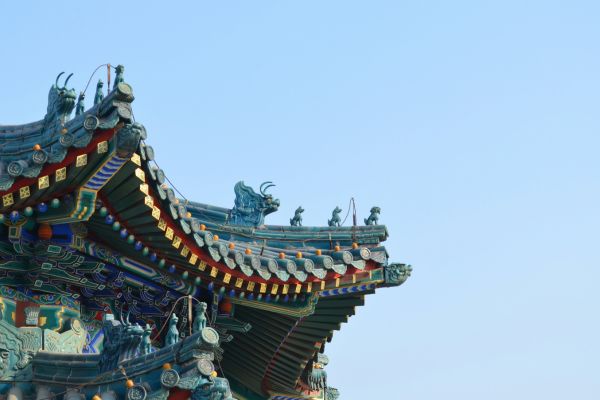
On 3 Feb. 2021, operators of China’s largest Fansub - YYeTs - were arrested. Since the end of 2019, China’s judicial policy had been imposing stricter sanctions for intellectual property infringements. The YYeTs case is the latest manifestation of this trend.
I. YYeTs operators got arrested
Starting from 2006, some of China’s Internet users begun to provide American TV shows with translated Chinese subtitles, which could be downloaded by the public. This has made it possible for Chinese audiences who do not understand English to enjoy American TV shows.
This kind of organization for translating and producing subtitles is called “fansub group” (or “subtitling group”) in China. Such fansub groups often consist of young Chinese people from all over the world who collaborate with each other through the Internet. (see a 2006 post in the New York Times)
Since then, many fansub groups have gradually expanded their coverage to films, TV shows, documentaries and video courses of countries around the world, so as to introduce foreign culture to China. Moreover, in addition to providing subtitles, many fansub groups also began to provide video downloading services.
YYeTs is one of the earliest and most famous one among these fansub groups. Many young Chinese grew up watching foreign videos marked with YYeTs.
According to the news released by the Shanghai Municipal Public Security Bureau on 3 Feb. 2021 in its WeChat Official Account (account name: 警民直通车上海), the YYeTs piracy case is solved and YYeTs’ operators have been arrested.
The history of YYeTs thus comes to an end.
II. Does YYeTs infringe copyrights?
According to the Shanghai Municipal Public Security Bureau, “without the authorization of the copyright owner, YYeTs downloads and obtains the film and TV works through overseas piracy forums, hires people (with CNY 400 per episode/film) to translate and compress the works, then upload them to the APP server to the public at approx. The YYeTs has made an illegal profit of CNY 16 million by membership dues, advertising revenues and selling pirated DVDs.”
According to the above description, YYeTs mainly commits three wrongdoings: (1) download and obtain the film source from the overseas piracy forums, and upload it to the APP server to the public without the authorization of the copyright owner; (2) make subtitles and provide them to the public without the authorization of the copyright owner; (3) make profits by membership dues, advertising revenues and selling pirated DVDs.
In China, audiovisual works such as films and TV shows are protected by the Copyright Law. Both the right of dissemination via information network and the right of translation are vested in the copyright owners.
YYeTs infringes the rights of copyright owners by disseminating works and providing translated subtitles on the Internet without permission.
According to China’s Criminal Law, “he who, for the purpose of making profits, reproduces and distributes a film, television or video work without the permission of the copyright owner, in case of an illegal income of more than CNY 30,000, may be sentenced to fixed-term imprisonment of not more than three years or criminal detention, and may in addition or exclusively be sentenced to a fine; in case of an illegal income of more than CNY 150,000, may be sentenced to fixed-term imprisonment of not less than three years but not more than seven years, and in addition be sentenced to a fine.”
With a profit of CNY 16 million, YYeTs is likely to be punished with the most severe penalty mentioned above.
III. Why is YYeTs punished now?
In fact, the behavior of YYeTs has long been considered as copyright infringement. For example, China National Intellectual Property Administration reposted an article on its website in 2017, concluding that the behavior of YYeTs constitutes an infringement.
However, the arrest of YYeTs’ members is related to China’s current judicial policy of strengthening IP protection.
Since the end of 2019, China’s judicial policy has tended to strengthen intellectual property protection, and the court also becomes increasingly tough on IP infringements.
At the end of 2019, the General Office of the CPC Central Committee and the General Office of the State Council jointly issued a policy, namely Opinions on Strengthening Intellectual Property Protection (关于强化知识产权保护的意见) (hereinafter “the Opinions”). This marks the starting point of the toughening of China’s IP policy in the past year.
The Opinions puts forward a goal: (1) in 2022, frequent and rampant infringement will be effectively curbed, and right holders can safeguard their rights much more effectively; (2) in 2025, IP protection will reach and maintain a generally satisfactory level, the business environment related to IP protection will be further improved, and the IP system can achieve the purpose of encouraging innovation.
We believe that the background of the Opinions should be derived from the negotiation of the Sino-US trade agreement at that time, and also related to China’s efforts to promote the signing of the Regional Comprehensive Economic Partnership (RCEP) and the China-EU Comprehensive Agreement on Investment (CAI).
It seems that the Chinese government hopes to take active measures to strengthen IP protection, so as to gain more initiative in the international arena.
Under this context, China’s judicial efforts in the IP sector float high with the rising tide.
This can be seen through the fact that in 2020 alone, the Supreme People’s Court (SPC) issued nine documents on intellectual property rights. In contrast, in 2019 and 2018, the SPC only issued two documents respectively, and seven documents from 2012 to 2017.
IV. What do the SPC’s intellectual property documents say
The nine documents issued by the SPC in 2020 cover not only judicial policies to be followed by local courts, but also binding judicial interpretations. These documents cover Internet-related IP infringement, e-commerce platform IP infringement, evidence rules and other litigation procedures.
1. Judicial policies
In 2020, the SPC issued four judicial policies. Among them, the two most important judicial policies are as follows:
On 25 Apr. 2020, the SPC issued Opinions on Comprehensively Strengthening the Judicial Protection of Intellectual Property Rights (关于全面加强知识产权司法保护的意见), which requires “effectively curbing IP-related offences and crimes, comprehensively improving the judicial protection of intellectual property rights”, “equally protecting the legitimate rights of Chinese and foreign parties”, and “carefully hearing foreign-related IP disputes caused by international trade and foreign investment”.
On 24 Sept. 2020, the SPC issued Opinions on Toughening the Penalties for Intellectual Property Infringements according to the Law (关于依法加大知识产权侵权行为惩治力度的意见), which requires “toughening the penalties for and effectively curbing IP infringements” and “toughening criminal punishment on criminal suspects living on IP infringements”.
The other two judicial policies are targeted at specific areas, namely:
On 16 Nov. 2020, the SPC issued the Opinions on Strengthening the Protection of Copyright and Copyright Related Rights (关于加强著作权和与著作权有关的权利保护的意见), which specifies the determination of the copyright owner and the punitive damages.
On 10 Sept. 2020, the SPC issued the Guiding Opinions on the Trial of Civil Cases involving Intellectual Property Rights of E-commerce Platforms (关于审理涉电子商务平台知识产权民事案件的指导意见), which specifies how local courts should try intellectual property disputes related to e-commerce platforms.
2. Judicial interpretations
In addition, the SPC also issued five judicial interpretations, which are legally binding.
On 10 Sept. 2020, the SPC issued the Provisions on Several Issues concerning the Application of Law in the Trial of Civil Cases of Infringing Trade Secrets (关于审理侵犯商业秘密民事案件适用法律若干问题的规定), which precisely defines the trade secret, the confidentiality measure, the confidentiality obligation, the infringement of trade secret, and provides for evidence rules and indemnification standards more favorable to the right holder.
On 10 Sept. 2020, the SPC issued the Provisions on the Application of Law in the Trial of Administrative Cases of Patent Authorization and Confirmation (I) (关于审理专利授权确权行政案件适用法律若干问题的规定(一)), which specifies how the court should hear the cases, inter alia, brought by the patentee or the person who does not accept the examination decision made by the administrative department for patent invalidation and makes the request for invalidation.
On 12 Sept. 2020, the SPC issued the Reply on Several Issues concerning the Application of Law in Disputes involving Internet-related Intellectual Property Infringement (关于涉网络知识产权侵权纠纷几个法律适用问题的批复), which specifies how the intellectual property right holder should request the network service provider to cease the infringement.
On 12 Sept. 2020, the SPC and the Supreme People’s Procuratorate (SPP) jointly issued the Interpretation on Several Issues concerning the Specific Application of Law in Handling Criminal Cases of Intellectual Property Infringement (III) (关于办理侵犯知识产权刑事案件具体应用法律若干问题的解释(三)), which specifies what kind of trademark infringement, copyright infringement and trade secret infringement will be subject to criminal penalties.
On 16 Nov. 2020, the SPC issued the Several Provisions on Evidence in Civil Litigation of Intellectual Property Rights (关于知识产权民事诉讼证据的若干规定), which specifies the rules of evidence in civil litigation of intellectual property rights, eases the burden of proof of the plaintiff while increasing that of the defendant.
V. Our comments
The promulgation of these documents is only the first step of China’s judicial authorities, while the implementation thereof is the more important part. The YYeTs case represents the most eye-catching milestone in terms of the implementation of such documents.
In fact, there have been several similar cases in recent months, such as the criminal case on LEGO counterfeits and the name right-related case where a Chinese sporting goods company was ordered to stop using the name of basketball star Michael Jordan.
We will keep following these cases to find out how Chinese courts protect intellectual property rights.
Contributors: Guodong Du 杜国栋 , Meng Yu 余萌









